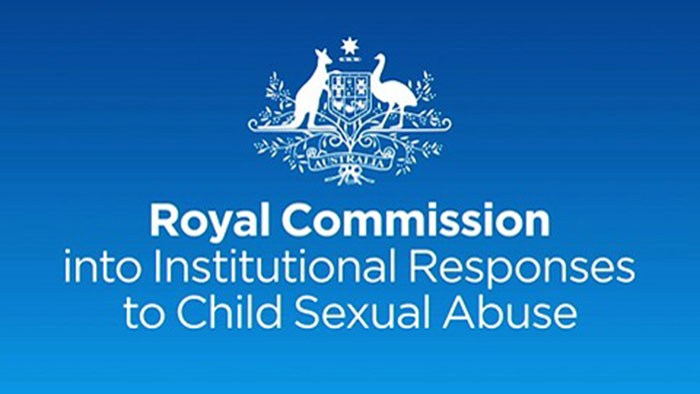Child sexual abuse happens everywhere, including in our families, at our children’s schools, and on university campuses. In her recent interview, “Surviving Sexual Abuse: The Australian Royal Commission into Institutional Responses to Child Sexual Abuse,” Kathleen McPhillips discussed her research on some of the Catholic survivors who testified at the official hearings. The Australian Royal Commission (ARC) was the largest investigation of its kind in modern history, and it investigated abuse across many different institutional contexts. The ARC’s final report is 17 volumes, only one of which covers abuse within religious institutions. As McPhillips emphasized, the Roman Catholic Church was “by far the most impacted” of all institutions involved, in part because it was found to have higher rates of abuse and more complex strategies of cover-up when compared to other institutional contexts.
McPhillips praises the Australian inquiry as “the most successful” of the dozens of high-profile inquiries into child sexual abuse that state and federal governments have launched over the past three decades. Like recent U.S. grand jury inquiries, the Australian Commission led immediately to stricter laws and regulations. Yet legal changes are only one metric, and in other contexts scholars have contested the value, risks, and limits of state commissions in addressing widescale traumas, as in the gacaca courts after the Rwandan genocide and the Truth and Reconciliation Commission in South Africa. In some of my research on U.S. Catholic survivors, I have noted that investigations and media spotlights can leave survivors feeling even more demoralized and isolated, even as pubic inquiries hold real potential to substantiate and de-stigmatize their suffering. Both in the American and Australian contexts, it remains to be seen whether government inquiries will significantly reduce rates of child sexual abuse in future generations.
In this response, I’m going to focus on the analytical value of a key term in McPhillips’ interview, “soul murder,” a concept that vividly conjures up images of the spiritual death described by many survivors of clergy sexual abuse. The history of the term “soul murder” helps orient us to the central question in the study of religion and sexual abuse, namely: Is sexual abuse categorically different in religious contexts than in other institutional contexts? The very design of the Australian Royal Commission suggests that it is not, and yet many scholars – including McPhillips and I – are invested in studying precisely how soul murder is distinctive within the Roman Catholic context. Our research suggests that soul murder is experienced differently not only within religious contexts (writ large), but also differently within and among various religious communities.
Mary Gail Frawley O’Dea (2007), Dr. McPhillips (2018) and myself (2019), are among the researchers who have used the term soul murder within our respective studies of clergy sexual abuse in the Roman Catholic Church. In the Catholic context, soul murder names the lifelong spiritual trauma that many survivors suffer, including: survivors’ self-described inability to trust priests and bishops; the intense pain many survivors feel when they try to participate in Catholic sacraments, especially baptism, confession, and the Eucharist; and the deep damage to survivors’ relationship with God, Jesus, Mary, and the saints. Some American psychiatrists and psychologists use soul murder even more broadly, to refer to the damage of child sexual abuse, irrespective of whether the abuse occurred in a religious context.
The phrase “soul murder” dates back to at least 1887, when August Strindberk employed it in a review of Henrik Ibsen’s Rosmersholm. Ibsen later used the term in his own writing, and it was then made famous by Sigmund Freud. In his analysis of The Schreber Case, Freud used soul murder to support his theory that child sexual abuse resulted in mental illness. In the American therapeutic context, it was popularized by Leonard Shengold in the 1980s. Shengold, who was interested primarily in incest, defined soul murder as the annihilation of a child’s network of relationships and their ongoing loss, as adults, of the basic capacities to express and receive love, trust, and intimacy. Throughout the twentieth century, philosophers and theorists – most notably Jacques Lacan, and Gilles Deleuze and Félix Guattari – argued that Freud seriously misread Schreber’s case. More recently, Alexander van der Haven has persuasively argued that Schreber’s use of “soul murder” (Seelenmord) was explicitly religious in its context. According to van der Haven, Schreber used soul murder to describe “when he began to experience penetration by divine forces,” and, later, to summarize a perceived “crisis in the relationship between God and humanity.”
Van der Haven’s analysis returns us to the central question: What, precisely, are we studying when we study religion and sexual abuse? This problem grounds the American Academy of Religion’s Contextualizing the Catholic Clergy Sexual Abuse Crisis Seminar, which I co-chair with Megan McCabe, who is an expert on the intersections of Catholic theology and campus rape culture. The question has also been taken up from a more comparative religions approach by the Luce-funded Religion and Sexual Abuse Project. And it is a prominent undercurrent in one of McPhillips’ most recent projects, The Survivor Story Podcast, in which she talks with some Australian Catholic survivors about how the abuse has reshaped their faith as adults.
In spite of being such a useful and provocative analytical concept, I sometimes worry that “soul murder” risks fetishizing the conjunction of religion and sexual abuse, implying some causality, as though horrendous abuse happens only at the hands of priests – when, in fact, it also happens at the hands of parents, and coaches, and university professors. As Megan Goodwin demonstrates in her recent book, Abusing Religion, media coverage of religious abuse often becomes fodder for anti-religious bigotry.
Similarly, the conjunction of religion and sexual abuse risks obscuring the many non-religious wounds of priestly child sexual abuse. In addition to spiritual trauma, many of the survivors who I have worked with also struggle with combinations of post-traumatic stress, educational attrition, drug and alcohol addiction, poverty, and suicide. It is the task of scholars to demonstrate not just how soul murder is distinctive from other forms of child sexual abuse, but also to recognize the ways in which it is similarly devastating on children, their families, and religious communities.



